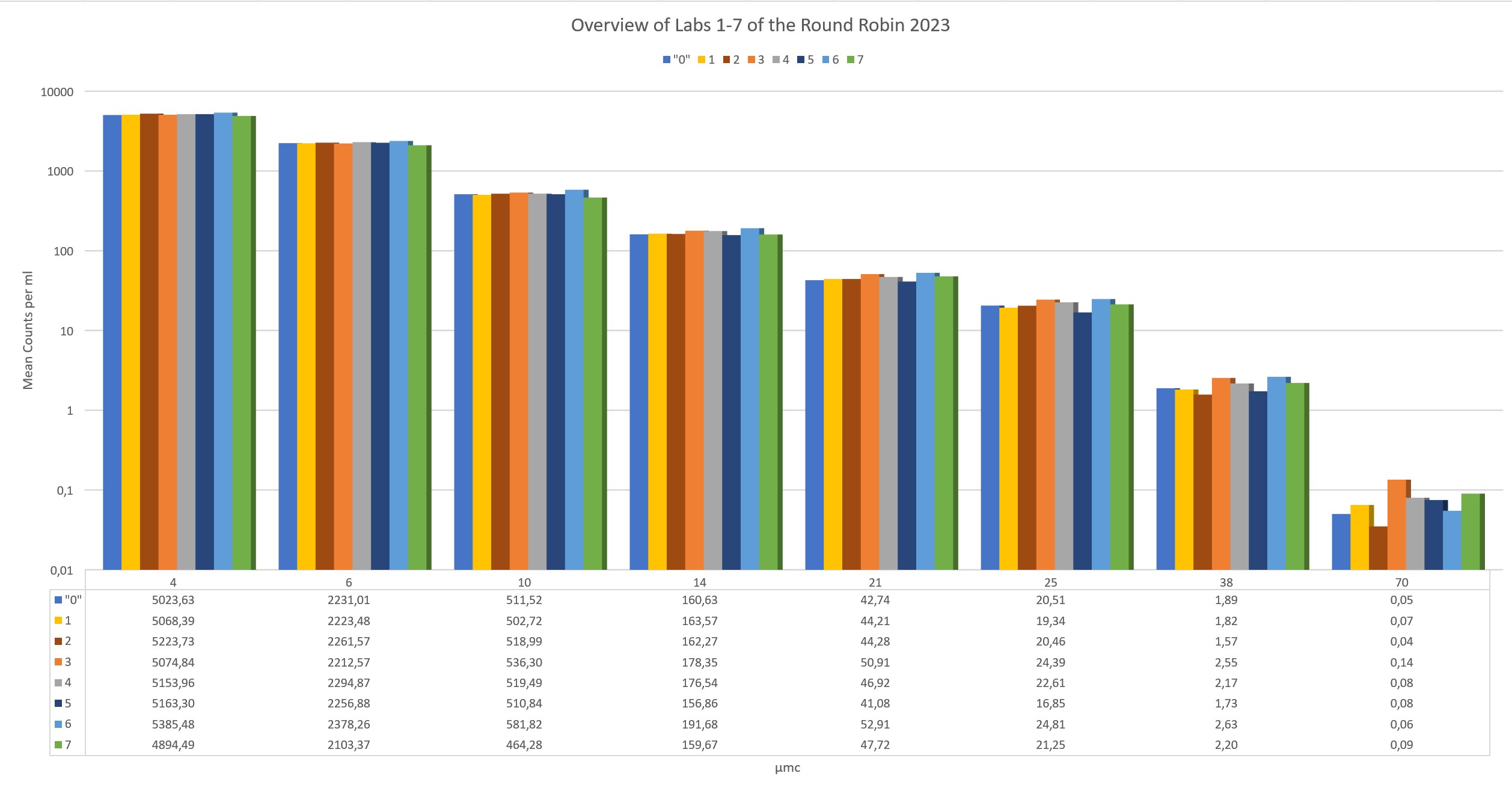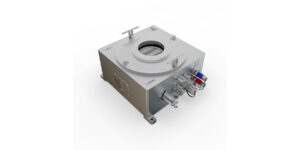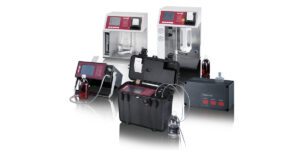Statement: PAMAS particle counter measurements are consistent, reliable, and repeatable.
A worldwide* round robin test was carried out to prove this very statement. The aim was to compare counting results regardless of device type, continent, calibration material and human factor.
A round robin test serves as a quality assurance check for the repeatability of a measurement at different locations. Identical samples are counted according to the same test procedure by trained external personnel in different laboratories. The vast range of instrument locations and collection of several results makes it possible to formulate a statement about the strength of the measurement method and the quality of the measured sample.
Proof: Procedure of the round robin test
- A validated batch of secondary calibration material (MTD) was set aside for this test at the beginning of 2022. This batch consisted of an exceptional equally distributed amount of medium test dust across all bottles to ensure identical fluid samples could be used.
- Two bottles from this batch were sent to external representatives worldwide*. To ensure a control analysis could be carried out, measurements were also taken at the PAMAS HQ laboratory using the PAMAS SBSS master particle counter. This ensures uniformity and full transparency.
- A fixed test procedure was defined for sample preparation (preparation of the sample by shaking vigorously for 1 min, 5 min in an ultrasonic bath, 15 min on the bottle roller and degassing by applying a vacuum).
- For the particle counter settings, 10 x 10 ml fluid samples were analysed, and the distribution of the specified size channels maintained for comparability.
- The results of the measurements were collected over a period of 6 months for the evaluation in Germany.
Result:
The tested PAMAS particle counters deviate by only 1.5% on average in the range of 4-14 µm(c). They are therefore optimally within the range of the expected natural variance in counting tests and thus clearly outperform other interlaboratory studies.
The result of the percentage deviations in the range > 14µm(c) is better than statistically expected despite the greater influence of the natural variance due to the lower particle concentration.
The results confirm that PAMAS particle counters, their associated calibrations, and the calibration material fully meet the globally set high quality requirements.
This round robin test is also evidence that, both the measurement method with upstream sample preparation as well as the sample itself, are suitable for this type of analysis.
*Worldwide
(laboratories in South America, Africa, Northern Europe, Central Europe, Southern Europe, Middle East, East Asia)





